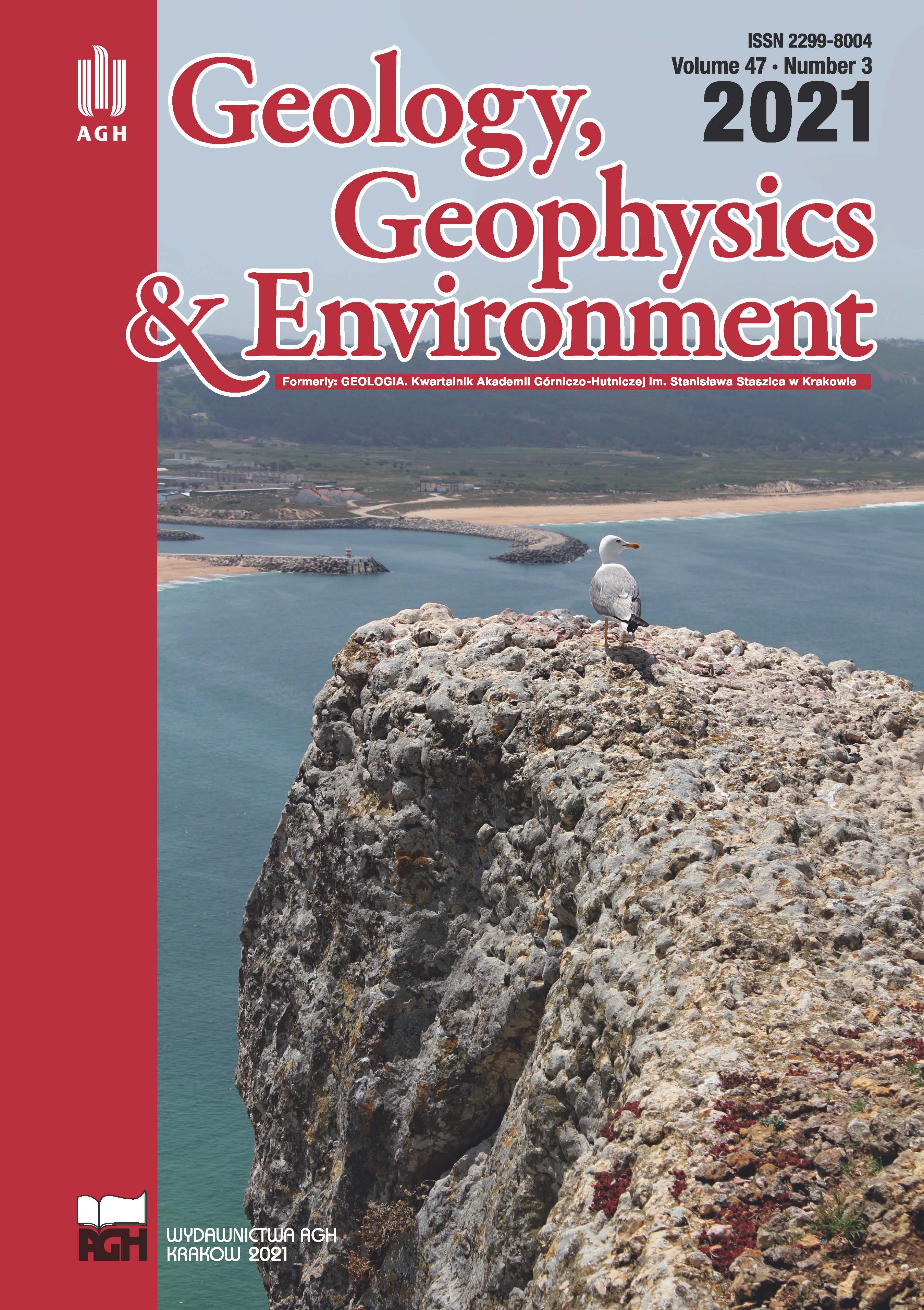Significance of real-time petro-physical data for an optimal remote geosteering operation in complex geological reservoirs
DOI:
https://doi.org/10.7494/geol.2021.47.3.125Keywords:
remote geosteering, integrated real-time data, logging while drilling, collaborative decision making, reservoir managementAbstract
In the last decade, the oil industry has transitioned from primarily drilling vertical wells to a majority of extended reach complex horizontal wells with help of geosteering techniques for better reservoir and production efficiencies. The overall objective of geosteering and well placement has helped to maximize reservoir contact by the keeping well trajectory in the pay zone with the help of quality real-time data, especially in these uncertain times of pandemic due to COVID-19. This paper illustrates the immense impact of real-time data feeds (special logging tools/images) at operation centers with the full remote expert support of multidisciplinary teams. The proper data communication mechanism is also helpful to share the information across asset teams in a timely manner to drill complex wells remotely. To achieve the desired geosteering objective, experts monitor and evaluate the real-time petro-physical data of a landing well and design the well path accordingly to stay in the pay zone/horizon. During this collaborative and integrated geosteering process, the geological and petro-physical variables like the reservoir architecture, permeability and porosity distribution, and fluid contacts are also being used to update the reservoir models in real-time, based on the latest subsurface information for better reservoir management, operational performance and timely decision making.
Downloads
References
Dawoud A., El Mahdi A., Ayoub M., Bin Saad M., Al Marzouqi K., Hendrawan I., Daif-Allah S. & Ghazi K., 2010. Geosteering Long Horizontal Holes in Abu Dhabi Heterogeneous Carbonate Reservoirs. Paper presented at the SPE Oil and Gas India Conference and Exhibition, Mumbai, India, 20–22 January, SPE-128851-MS. https://doi.org/10.2118/128851-MS.
Fjellheim R., Herbert M., Arild Ø., Bisio R. & Holo Ø., 2010. Collaboration and Decision Support in Geosteering. Paper presented at the SPE Intelligent Energy Conference and Exhibition, Utrecht, The Netherlands, March 2010, SPE-128721-MS. https://doi.org/10.2118/128721-MS.
Khudiri M.M., Oteibi M.D., Gadri W.I., AlSanie F.S., Kashif M. & Hickin G., 2014. An Innovative Approach to Select Shallow Casing Points Remotely, Utilizing Real-Time WITSML Data. Paper presented at the SPE Intelligent Energy Conference & Exhibition, Utrecht, The Netherlands, April 2014, SPE-167813-MS. https://doi.org/10.2118/167813-MS.
Kullawan K., Bratvold R. & E. Bickel J.E., 2014. A Decision Analytic Approach to Geosteering Operations. SPE Drilling and Completion, 29(01), 36–46. https://doi.org/10.2118/167433-PA.
Petrolink, n.d. Single Viewer Solution for Real-Time Drilling Data Saves Middle East Operator 50% of Previous Costs. https://www.petrolink.com/single-viewer-solution-saves-middle-east-operator-50-percent-of-previ-ous-costs/ [access: 5.08.2021].
Raja H., Carpenter G. & DeShawn O., 2011. Workflows and Methods to Optimize Well Construction through a Collaborative Environment. Paper presented at the SPE Digital Energy Conference and Exhibition, The Woodlands, Texas, USA, April 2011, SPE-143600-MS. https://doi.org/10.2118/143600-MS.
Sapkal A.V., Keot C.J., Majumdar C., Kar S., Kumar S., Vashisht T.S. & Kumar A., 2011. Geosteering technology shows the new direction for major production enhancement in western onshore, India: an exceptional success-story from ONGC Ahmedabad asset. [in:] SPWLA-INDIA 3rd Annual Logging Symposium, Mumbai, India Nov 25–26, 2011.
Downloads
Published
Issue
Section
License
Authors have full copyright and property rights to their work. Their copyrights to store the work, duplicate it in printing (as well as in the form of a digital CD recording), to make it available in the digital form, on the Internet and putting into circulation multiplied copies of the work worldwide are unlimited.
The content of the journal is freely available according to the Creative Commons License Attribution 4.0 International (CC BY 4.0)










